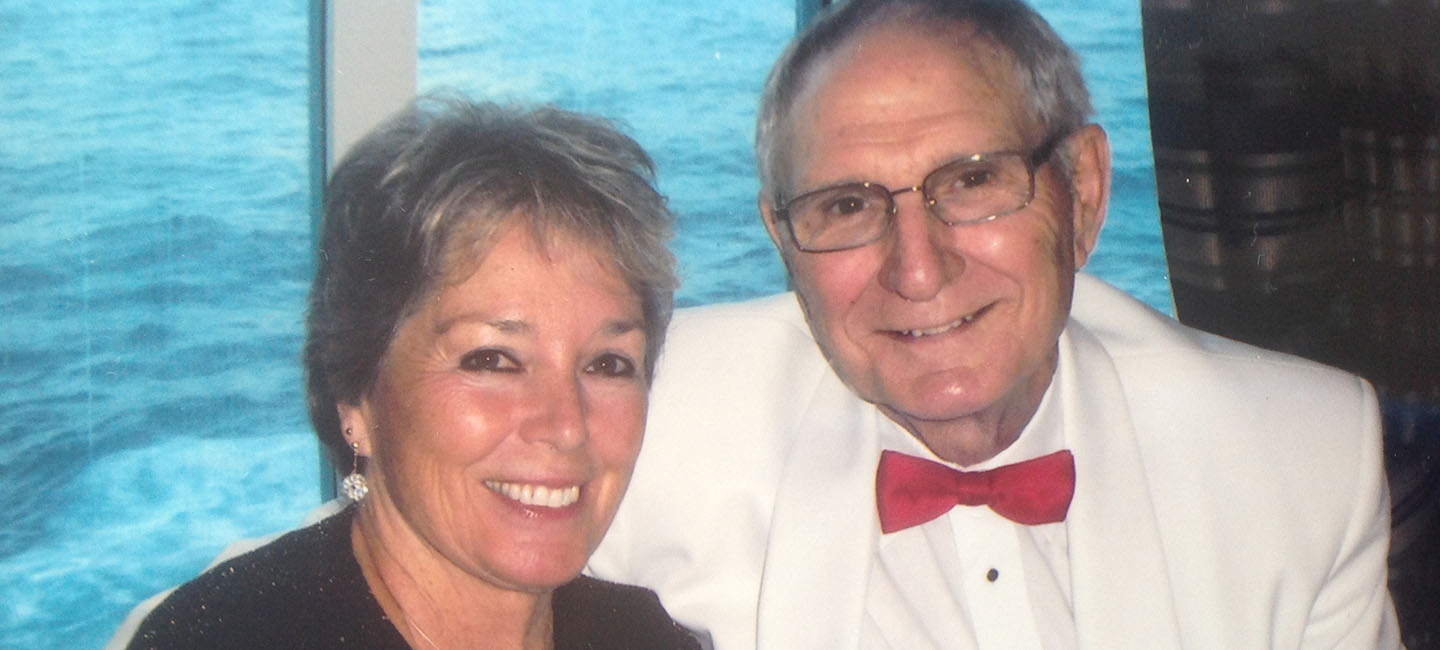Husband and Wife Win Lung Cancer Fight Thanks to Screening
Stanley Carr doesn’t take a single breath for granted, literally.
He started playing the bagpipes as a 12-year-old boy in Scotland. He was in various bands and brought his music across the pond when he immigrated to the U.S. in 1960.

Stanley Carr began playing the bagpipes at age 12
In 2009, Carr couldn’t shake what he thought was the flu. It turned out to be late stage lung cancer.
“Cancer was something that happened to someone else, it didn’t happen to me,” said Carr.
Carr had surgery to remove the tumor and some lymph nodes at Moffitt Cancer Center, and when the cancer returned surgeons removed part of his lung. He has been cancer free ever since.
During one of Carr’s annual scans, his wife, Alice Monroe, asked his doctors if there was any kind of lung cancer screening. She had quit smoking more than 30 years ago, but was still concerned there could be lasting effects.
Monroe was enrolled in Moffitt’s Lung Cancer Screening Program, which offers low dose CT scans to individuals who are between 55 and 80 years old and have smoked an average of one pack a day for 30 years, regardless of when they quit smoking.
Monroe was scanned every year, and a few years ago doctors noticed something small in her upper lung. They kept an eye on it each year, and in 2019 doctors decided it was time to remove a portion of Monroe’s lung before the cancer spread.
“If I hadn’t been in Moffitt’s program, I would be dead in a couple of years,” said Monroe. “I had no symptoms. I was exercising five to six days a week and thought, how could I get cancer if I quit smoking 32 years ago?”
Lung cancer often has no symptoms, so it’s hard to detect early when there is a best chance for a cure. More than 60% of lung cancers are diagnosed after the disease has spread, leading to worse outcomes for patients.
Carr and Monroe have both lost a piece of their lungs, but have found a new appreciation for their health. They both continue to be screened—Carr every year and Monroe every six months—and are very grateful for their good outcomes.
Because of his decreased lung capacity and shortness of breath, Carr has had to stop playing his bagpipes. He gave them to his eight-year-old grandson with the hopes he will carry on the tradition, and has taken up a new hobby growing orchids.



